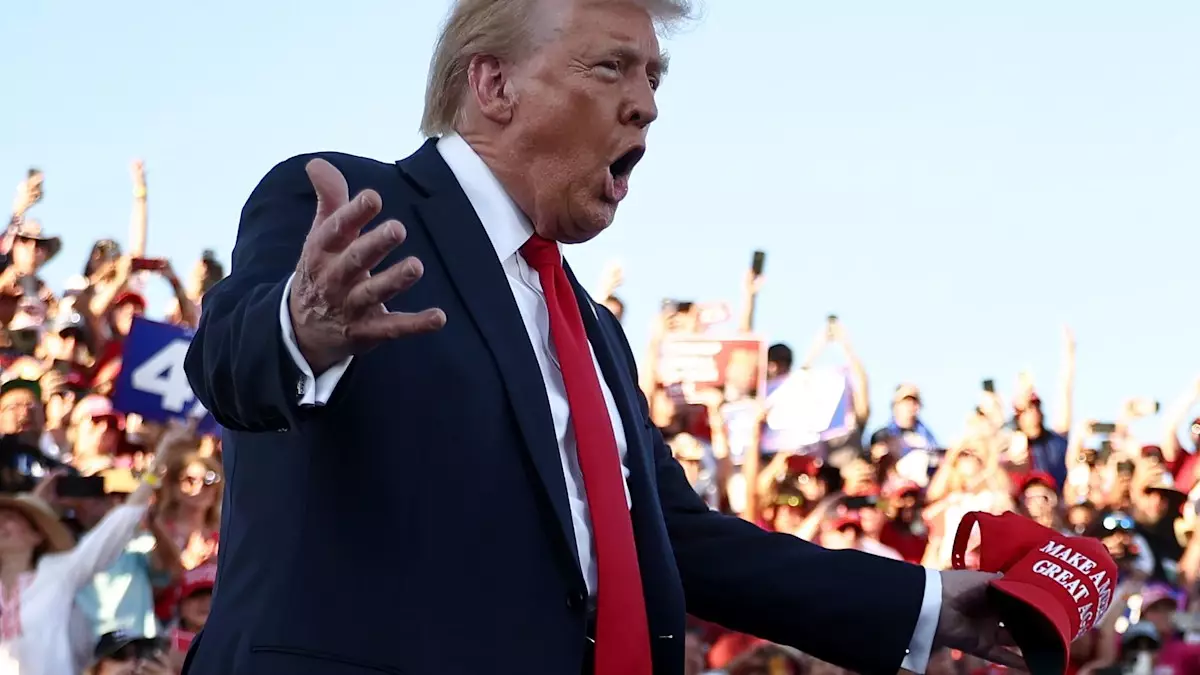Recent events have once again underscored the contentious nature of modern American politics, especially when a rally for former President Donald Trump in California was interrupted by a serious security threat. A 49-year-old man, later identified as Vem Miller, found himself at the center of a high-stakes arrest, revealing deeper issues regarding political safety in an increasingly charged environment. Authorities in Riverside County acted swiftly at a checkpoint near the Coachella Valley rally, apprehending Miller, who was in possession of multiple firearms and counterfeit credentials.
The arrest unfolded just a mile from the rally site, an indication of how close the potential threat was to becoming a reality. This proximity has raised significant questions about personal safety and the potential for political violence. Riverside County Sheriff Chad Bianco stated that the arrest likely thwarted a more significant attempt on Trump’s life. The implications of such an assertion are alarming—engendering worries that political rallies, spaces traditionally seen as platforms for expression and discussion, have now morphed into high-risk venues.
Miller, a Las Vegas resident with a master’s degree from UCLA, presents a paradox of sorts. On one hand, he is an educated individual who previously ran for a political office in Nevada. Conversely, his alleged affiliations with extreme right-wing, anti-government groups illustrate a disconcerting trend within certain political factions in America, where radical ideologies can push individuals toward extreme actions. His entry into politics might have stemmed from a genuine desire to contribute to public discourse, but this incident casts a long shadow over his intentions.
The pressing question that arises from this arrest is not just about Miller’s personal motivations, but also the broader implications for political campaigns and the individuals who participate in them. How did a figure seemingly embedded in civil society turn into a potential threat? This incident should serve as a catalyst for examining the mental and ideological journeys that lead individuals down such perilous paths.
The arrest of Miller reflects a profoundly unsettling reality regarding political safety, particularly for public figures like Trump, who have become focal points for both supporters and dissenters. Society’s growing political polarization can easily cultivate environments where radical actions seem justified to those enveloped in extreme ideologies. Sheriff Bianco’s comments about the discrepancies in Miller’s fake credentials highlight serious flaws in our security measures at public events. It begs the question: what steps can be taken to enhance security at political gatherings?
The visible gaps in screening processes could expose other public events to similar threats. Furthermore, the response from political and security entities to such incidents speaks volumes about current strategies in safeguarding political figures and the public. The U.S. Secret Service’s silence post-arrest, paired with the acknowledgment of heightened security for future events, signifies a reactive rather than proactive stance in political event safety.
While Miller’s situation has been swiftly managed by law enforcement, it raises concerns among the public about their safety at political events. The rally itself attracted a considerable turnout, even amidst soaring temperatures, demonstrating public interest in Trump’s campaign effort. However, the underlying anxiety heightened by this arrest could deter citizens from attending similar events in the future, ultimately affecting political engagement and discourse.
Moreover, the lack of comments from Trump’s campaign raises questions about the handling of such sensitive incidents publicly. The political landscape calls for transparency and assurance, especially in the face of such serious allegations. This reticence could be perceived as dismissive of public safety or an attempt to downplay the severity of the threat when, in reality, it should be a primary concern for any political campaign.
The attempted threat against Trump, encapsulated in Miller’s arrest, serves as a microcosm of a more profound division in society. As political gatherings continue to evolve into potentially perilous endeavors, concerted effort from both law enforcement and political campaigns will be vital in restoring not only safety but also public confidence in the democratic process.

